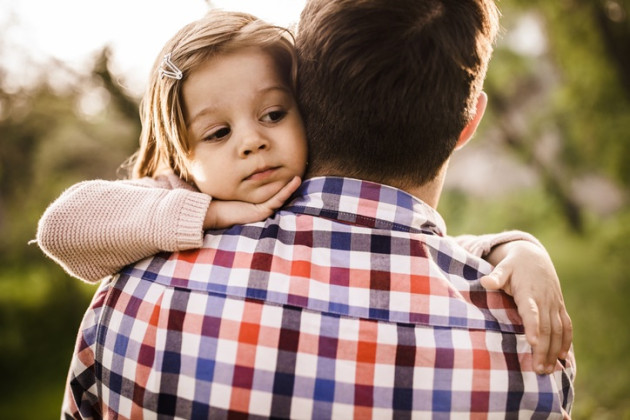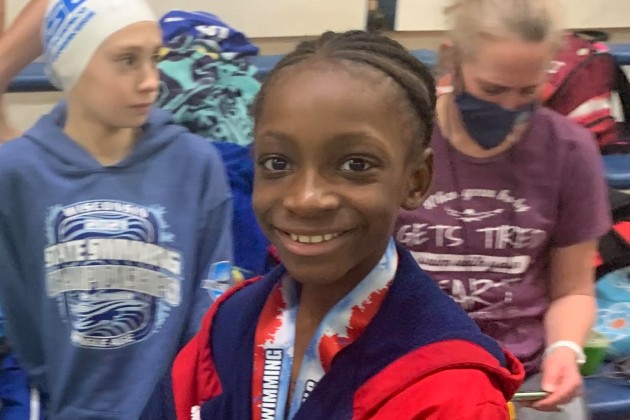Expert Advice on How Parents Can Answer Kids’ Questions About Mental Health

Each year, thousands of kids write to Highlights magazine to share their creativity, make suggestions for a new feature or puzzle or seek guidance on a problem they are experiencing. Since Highlights’ founding in 1946, our editors have personally answered every child who has written to the magazine. Highlights believes that when we lean in and listen to children and their concerns, big and small, we let them know that they are not alone and that what they think and do matters. We never tell a child how to solve their problem, but we do offer them options they could consider that might help. Always, when dealing with tough questions, we suggest that kids ask for help from a trusted grownup in their life.
Being that trusted grownup is not always easy, but we have the opportunity to help kids navigate tough emotions like worry, sadness and anxiety. The Ad Council's Sound It Out campaign, through its team of youth psychology experts, has provided responses to challenging questions received from Highlights readers that can offer a guide to grownups helping kids with similar issues. The responses that Highlights editors gave directly to the children who wrote us can be found in the book Dear Highlights.
Dear Highlights, I have this big national exam to take in about 2 weeks’ time! The results will determine what secondary school I will be going to for the next 4 years. I don’t want to be in a school that’s badly influenced! I really like my current school and I’m worried that if I don’t make it back I’ll go to another school! I’ve tried every trick in the book to relieve my stress, but nothing works, help!” – Ava
DR. MIRANDA
It is normal to feel anxious before an important exam. As parents, we often want to keep our children from feeling anxious by providing immediate reassurance that things will work out as we would like them to. Encourage your child to talk about it, and if they don’t want to, you can also model this for them by telling them about a time when you were worried before a big exam or other important event, what that felt like for you, and what helped you get through it. Remind them that no matter what happens, you love them, you are there for them and they will get through this. The Sound It Out campaign has more information on how to address stress and anxiety with your child.
DR. JACKMAN
Practice staying in the present moment. Here are a few strategies to support your child when they're stressed:
- Reassure your child that their feelings are typical and allow them to share their full emotions with you. Do not minimize or discount their experience.
- Practice mindfulness exercises with your child. Try tuning into your 5 senses or deep breathing. They can use this before studying and before they start the exam.
- Support your child to focus on what they can control such as being prepared (e.g., create a realistic study schedule, make note cards or offer to test their knowledge).
“I’m a military kid. Have been all my life. Usually we move to a military base, but my dad just moved to the reserves. So we moved to a small town, where nobody ever moves and everybody knows everybody. To be the odd ball out is hard, and it doesn’t help that I’m terrible at making friends. Any suggestions on how to make friends and settle better?” Anonymous
DR. MIRANDA
We can be the constant when our kids experience change. It may take time for your child to feel settled into their new environment and to make new friends. During this period of adjustment, you can remain the constant in their lives by making time to check in regularly with them, listening without judgment and validating their feelings. Being open about what this change is like for you can let them know that they are not alone in how they feel. You can find some suggestions on how to start the conversation here.
DR. JACKMAN
Check-in with your child to see how they are adjusting to the new move. You may have moved many times, but creating an intentional time to talk to your child about their feelings, worries and joys about the move will give you insight on how you can support them. Tap into community resources to support your child’s social life such as a parents’ group, town library or the local recreational center. Talk to the school counselor and ask them to pair your child with 1 or 2 buddies who can show them around, which could also be a start to a new friendship.
“I was bullied for the last 2 school years which has changed my attitude from nice to mean. So now my temper is bad. I don’t know how to let my temper out without being mean and hurting other people including my friends. What should I do?”- Dakota
DR. MIRANDA
To encourage conversations about emotions, start small. It can be hard for our kids to open up to us and to other people about how they are feeling, especially when they have experienced bullying or other problems with their peers. But keeping those experiences and feelings to themselves can lead to more anger, sadness and isolation. If you are unsure of how to start a conversation with your child about how they are feeling, start smaller, with a conversation about something else they can relate to, such as a show they watch on television or music they are listening to. The important thing is to have a conversation going, even if it feels awkward at first. If you get stuck, check out the Conversation Starter Pack from Sound It Out.
DR. JACKMAN
Talk to your child about the changes you are noticing. They may not want you to intervene for fear that the bullying will get worse. Let your child know that you are worried about their safety and you want to work together to come up with a solution. For your child’s safety, you may also need to inform the school leaders so that they can put measures in place to protect your child.
“Dear Highlights, I think I have depression. I have all the symptoms. I don’t want to tell anyone because my mom will take me to too many different doctors, but I know my mom causes it. She makes me sad every day.”
Anonymous
DR. MIRANDA
It is okay to get help from a professional when our kids are struggling. About one in six teenagers experience depression in a given year, and over 40% report feeling persistently sad or hopeless. While changes in mood are common in childhood and adolescence, there are some signs that could indicate that your child might be experiencing depression. Not knowing how to help our kids when they are suffering can lead us to feel guilt, shame and helplessness. And while it can be tempting to want to handle things on our own, consulting a mental health professional can help us learn more about how to support our kids.
DR. JACKMAN
Take your child’s concerns seriously and get them support. While it may be hard to know that you are part of the reason for your child’s sadness, the more immediate concern is to get them help. Talk to your child’s teacher about any mood or behavior changes they’ve noticed. Ask the counselor to assess your child for depression and suicide. Let your child know that you love them, you care about their wellbeing and you want to make sure they get support. Ask what you can do differently and make a genuine effort to spend quality time doing activities they enjoy.
More About the Experts:
DR. REGINA MIRANDA
Regina Miranda is a Professor of Psychology at Hunter College, where she directs the Laboratory for the Study of Youth Cognition and Suicide, and she is also a faculty member in the Doctoral Program in Health Psychology and Clinical Science at The Graduate Center of the City University of New York. Her research focuses on understanding why young people think about and attempt suicide in a way that can inform assessment, treatment, and prevention of suicide risk. Her work has been funded by grants from the National Institutes of Health and the Substance Abuse and Mental Health Services Administration. Dr. Miranda co-founded and directs the Youth Suicide Research Consortium, which seeks to increase diversity in youth suicide research. Dr. Miranda is the daughter of Honduran immigrants and is a first-generation college student. She received her B.A. in Psychology from Yale University in 1997 and her Ph.D. in Clinical Psychology from New York University in 2004. She completed a Post-doctoral Research Fellowship in the Division of Child and Adolescent Psychiatry at Columbia University, College of Physicians and Surgeons, from 2004 to 2005, before joining the Psychology Department at Hunter College in 2005.
DR. CHARMAIN JACKMAN
Dr. Charmain “Dr. Charmain” Jackman (she/her) is a licensed psychologist, author, and global speaker with 25+ years in the mental health field. She is the founder and CEO of InnoPsych, a Black-woman-owned mental health tech company and an industry leader providing inclusive mental health solutions to people, communities. and companies. Prior to starting InnoPsych, Dr. Charmain worked as a forensic psychologist in the Boston Juvenile Court Clinics and as a school-based clinician for 17 years. She also served as the Dean of Health & Wellness at Boston Arts Academy for 10 years, where she supported school leaders in cultivating emotionally safe work cultures for students and staff. She has extensive experience working with youth and families in a variety of settings. Dr. Charmain is passionate about helping families build strong partnerships with their school community, and she authored a chapter on that topic in The Parent’s Guide to Psychological First Aid- Revised. She is deeply invested in teaching tools that foster healing and thriving and is the creator of the My Time To Thrive card deck, an interactive tool for reducing stress. Dr. Charmain has won several awards for her impactful work including the Boston Business Journal 2022 Power 50 Movement Makers and 2021 American Psychological Association’s (APA) Citizen Psychologist Award. Dr. Charmain has been featured on national media outlets such as the New York Times, NPR, PBS, Oprah Daily, Essence, Black Enterprise, and the Boston Globe and is a regular contributor to the PBS Teachers Lounge column. Dr. Charmain has partnered with the Ad Council on several projects related to mental health for children and their families. Dr. Charmain is mom to two wonderfully creative children.









